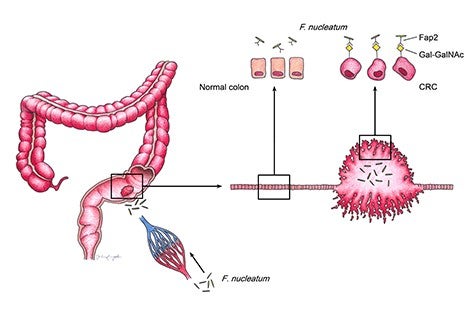Boston, MA — Some bacteria, called fusobacteria, commonly found in the mouth, use a sugar-binding protein to stick to developing colorectal polyps and cancers, according to a new study by researchers from Harvard T.H. Chan School of Public Health and Hebrew University-Hadassah School of Dental Medicine. While certain fusobacteria have previously been shown to worsen colorectal cancer in animals by the Garrett Lab at Harvard Chan School, this study is…
Continue reading “Fusobacteria use a special sugar-binding protein to bind to colon tumors”
